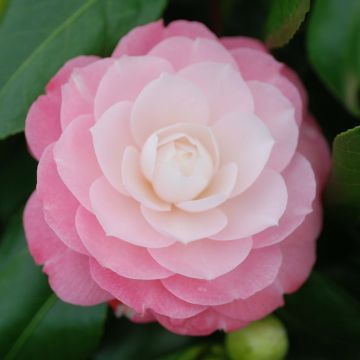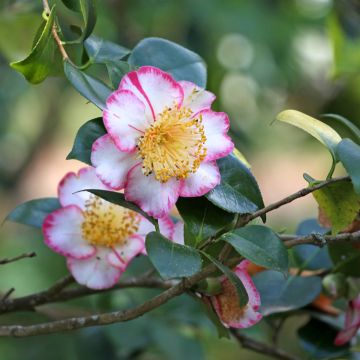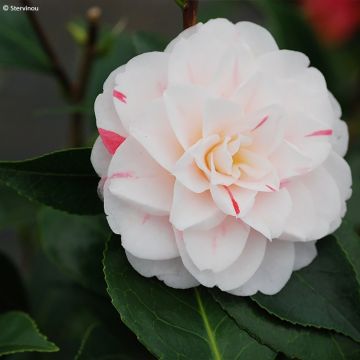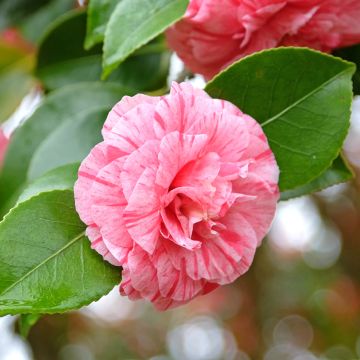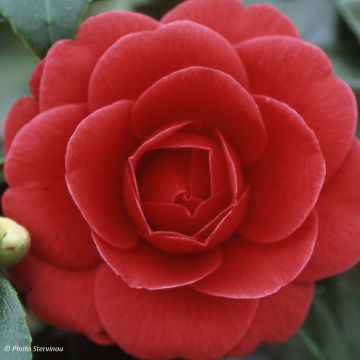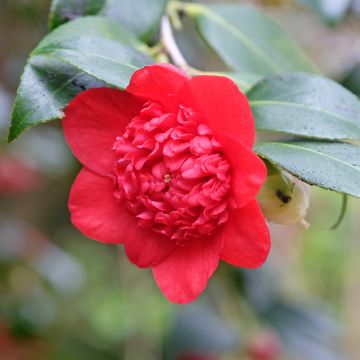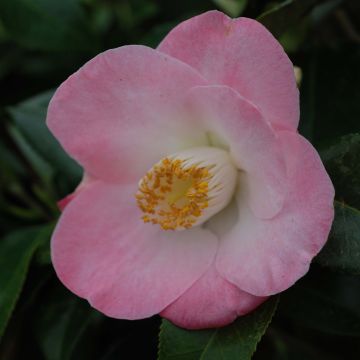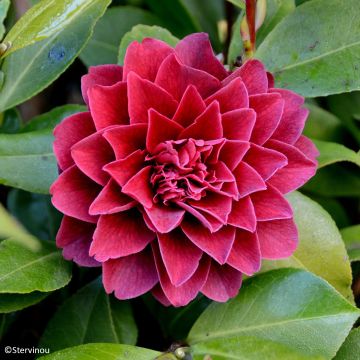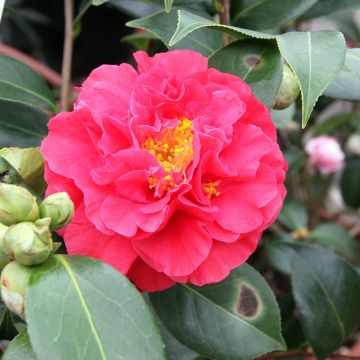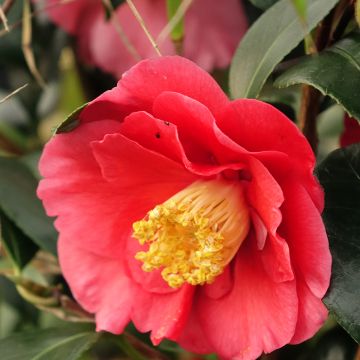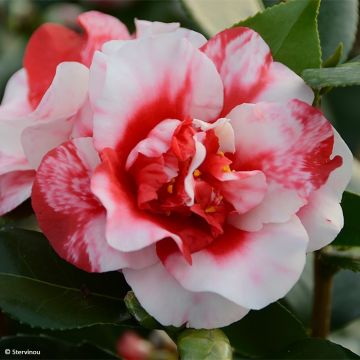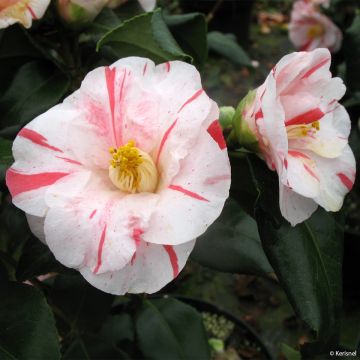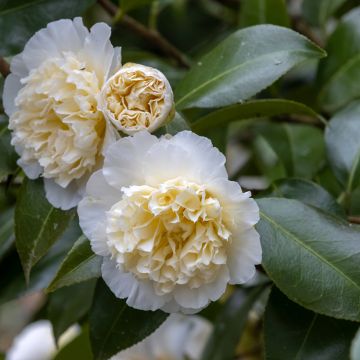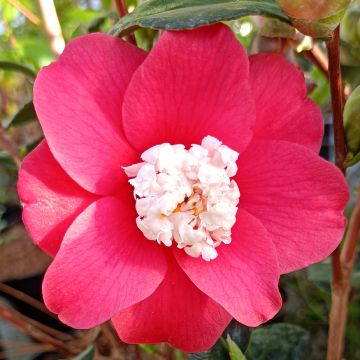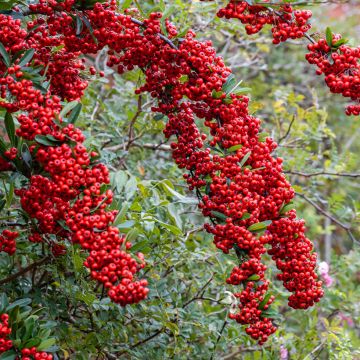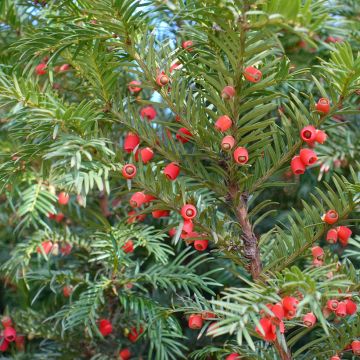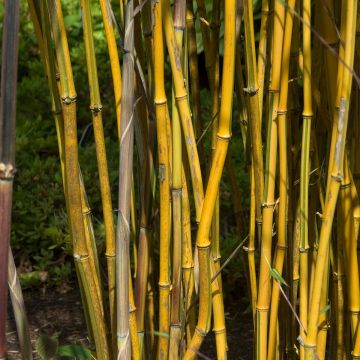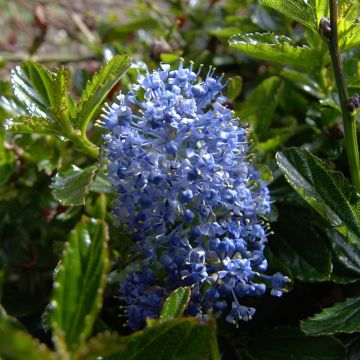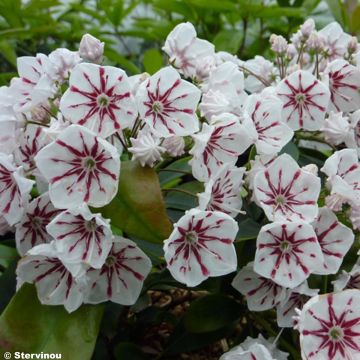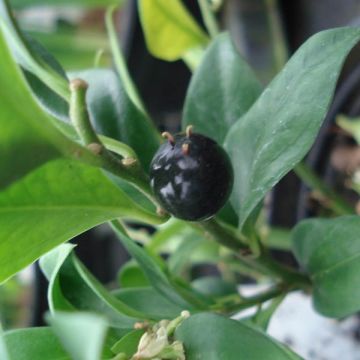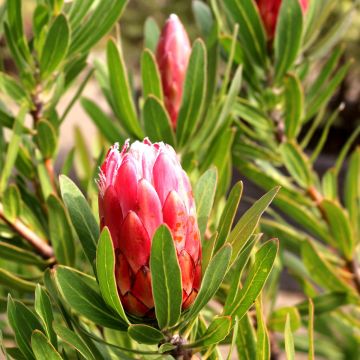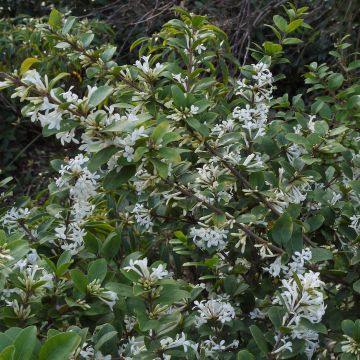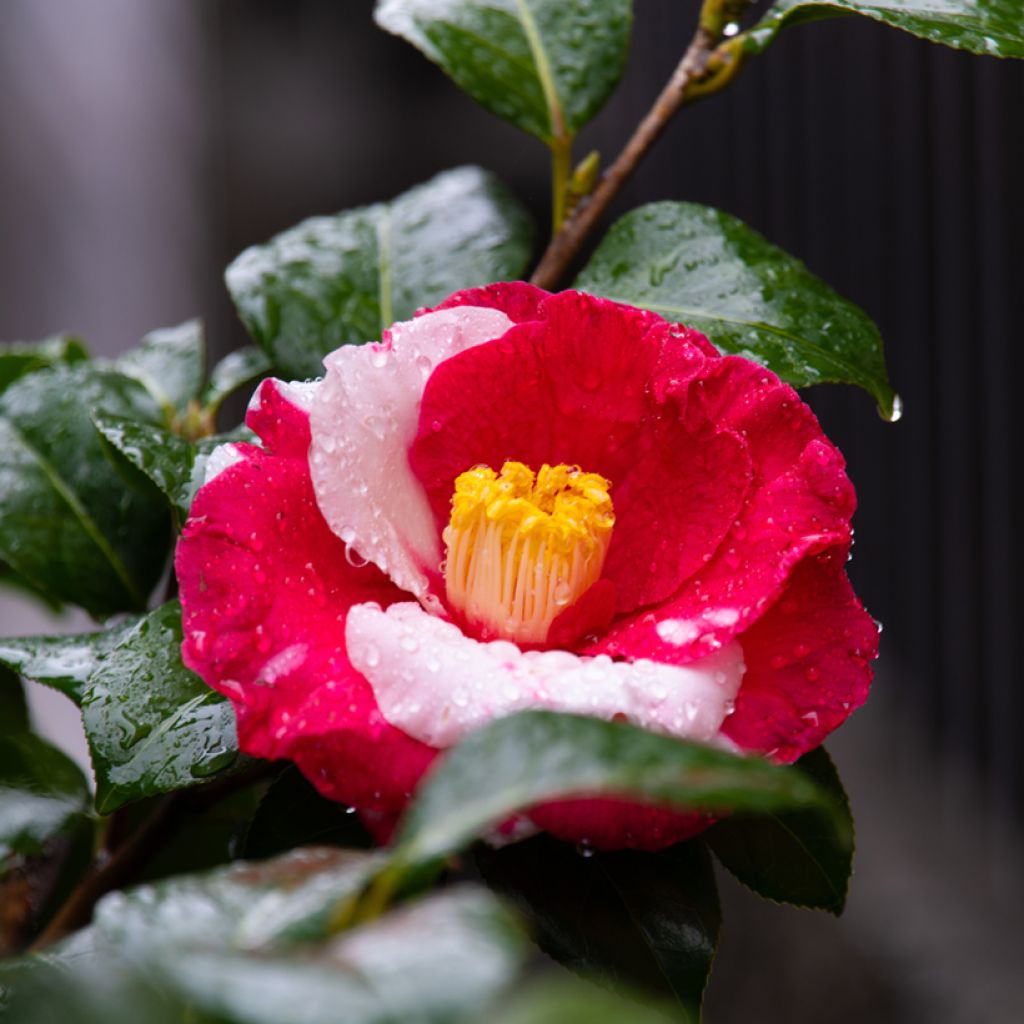

Camellia japonica Robert Lasson
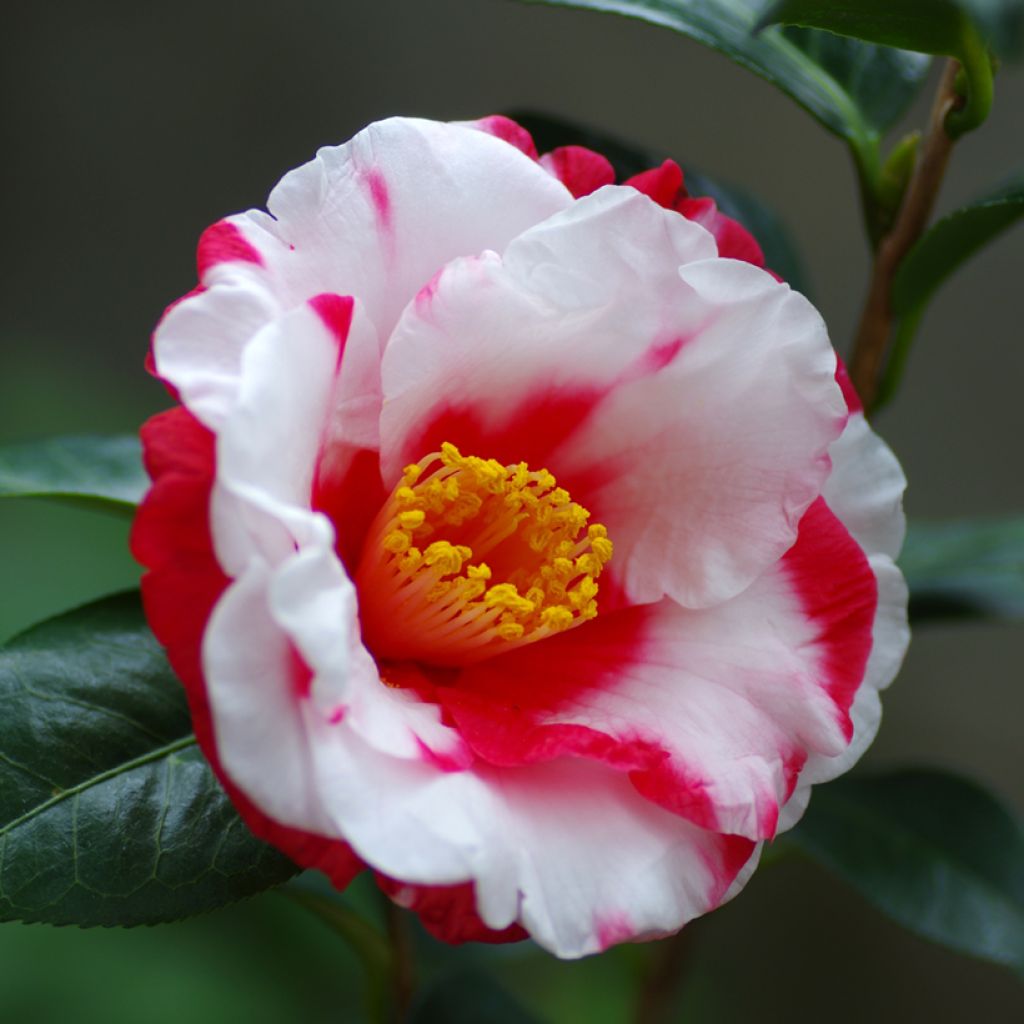

Camellia japonica Robert Lasson
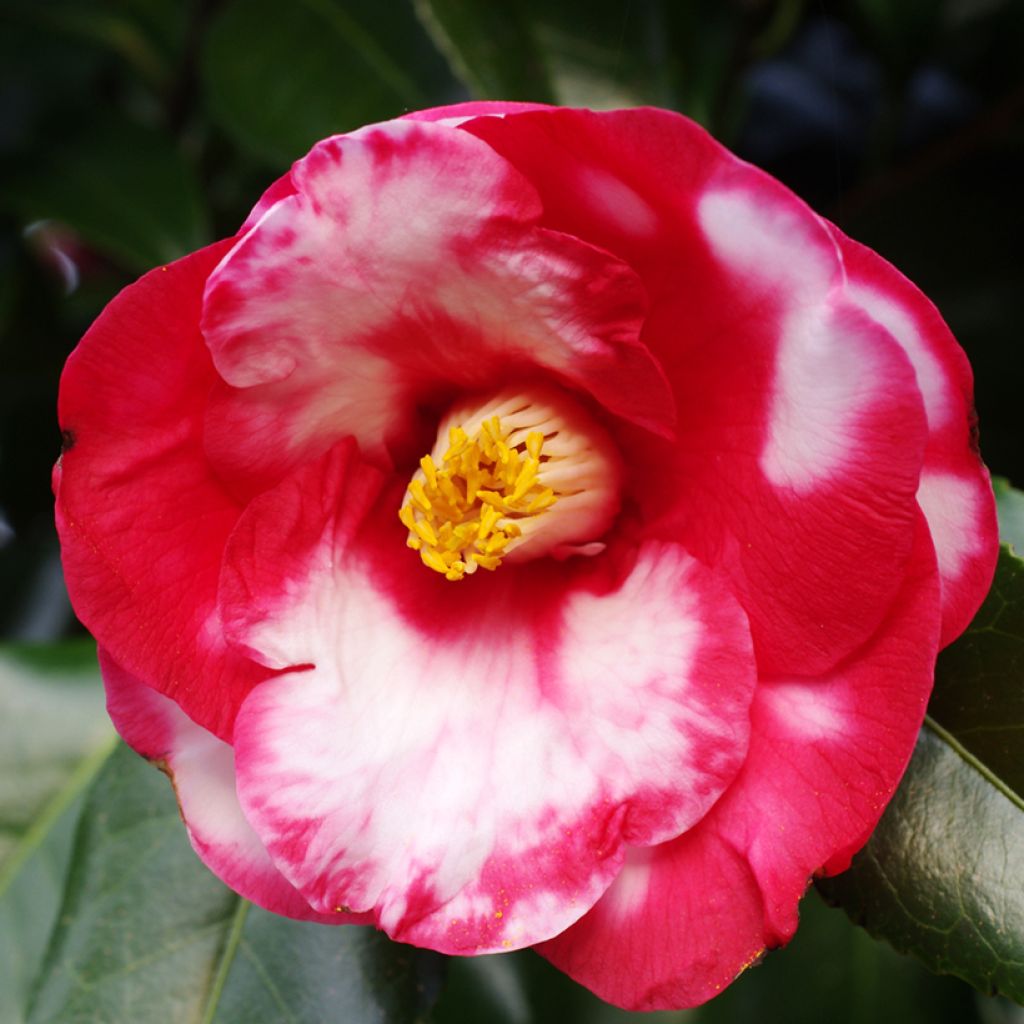

Camellia japonica Robert Lasson
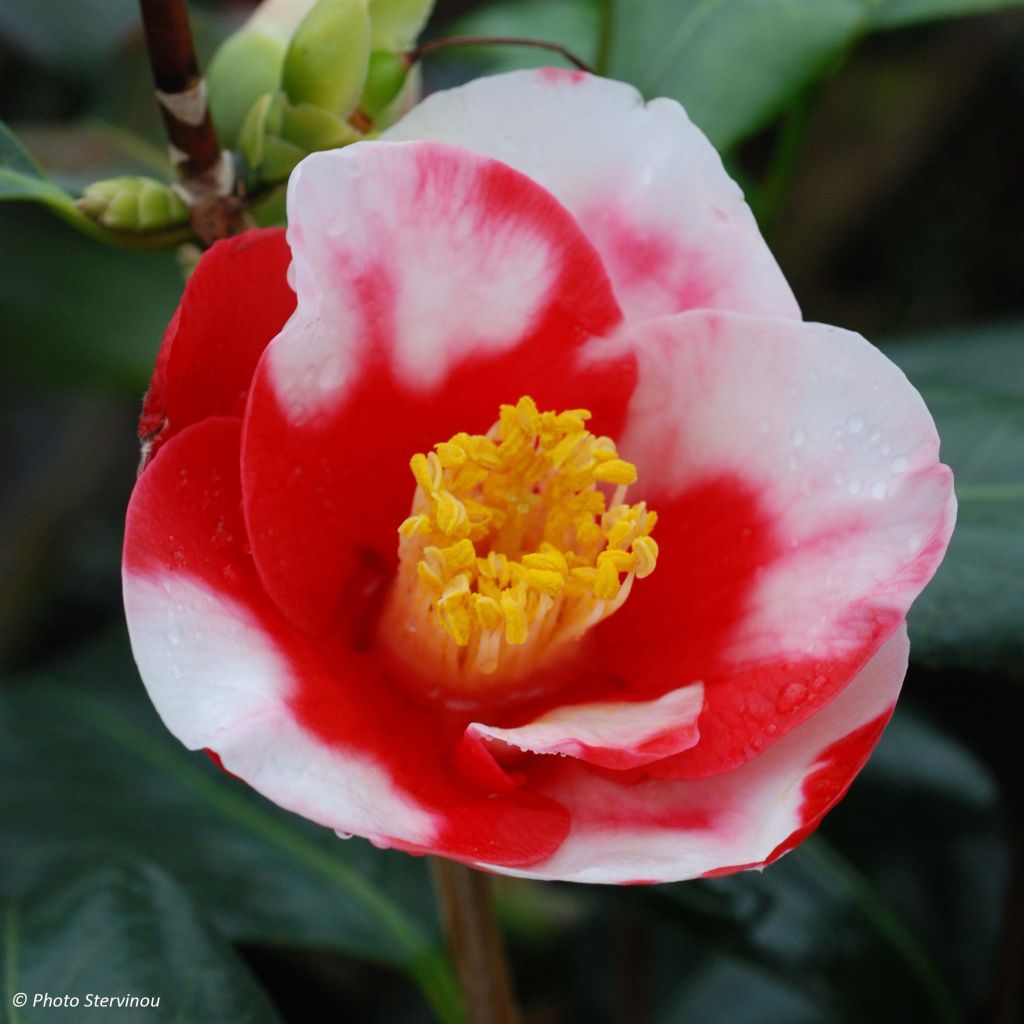

Camellia japonica Robert Lasson
Camellia japonica Robert Lasson
Camellia japonica Robert Lasson
Japanese Camellia, Rose of winter
The random coloration of the flowers is quite unique; I really like it and even though the young plant is still in its neck stage, the flowering has been significant.
Joelle Anne, 05/05/2019
Special offer!
Receive a €20 voucher for any order over €90 (excluding delivery costs, credit notes, and plastic-free options)!
1- Add your favorite plants to your cart.
2- Once you have reached €90, confirm your order (you can even choose the delivery date!).
3- As soon as your order is shipped, you will receive an email containing your voucher code, valid for 3 months (90 days).
Your voucher is unique and can only be used once, for any order with a minimum value of €20, excluding delivery costs.
Can be combined with other current offers, non-divisible and non-refundable.
Why not try an alternative variety in stock?
View all →This plant carries a 24 months recovery warranty
More information
We guarantee the quality of our plants for a full growing cycle, and will replace at our expense any plant that fails to recover under normal climatic and planting conditions.

Would this plant suit my garden?
Set up your Plantfit profile →
Description
Camellia 'Robert Lasson' is a variety from Japan that is relatively uncommon in cultivation. Its flowers are medium-sized, semi-double, and more or less variegated or marbled with strawberry red on a white background. Centred around a beautiful column of golden stamens, they are all different and create a beautiful tricolour effect. They bloom in winter on a vigorous and elegant shrub that keeps its large dark green leaves all year round. Its moderate growth allows it to fit into gardens of all sizes and to be displayed prominently in a large pot on the terrace or balcony for many years.
Camellia 'Robert Lasson' (also known as 'Tsuki-no-wa') was discovered in Japan by R. Lasson, who gave it its name. It belongs to the family of Theaceae. It is a bushy, compact shrub that will reach approximately 1.2 m (4 ft) in height and 1 m (3 ft) in width after 10 years. At maturity, after 15 to 20 years, it can reach an average size of 1.75 meters (5-6 ft) in height and 1.5 meters (5 ft) in width, depending on the growing conditions. From February to April, sometimes as early as January, it produces large round flower buds. These open into flowers with a diameter of 8-9 cm (3-3.5 in), in the shape of a flared cup, composed of 7 to 9 broad, rounded petals surrounding a heart of long stamens. The foliage is evergreen, with large elliptical leaves, 10 cm (4 in) in length and 5 cm (2 in) in width, which are tough, finely dentate along the edges, dark green and glossy on the upper surface. While this shrub is hardy down to -15°C in the ground, its flower buds can be destroyed by snow, cold winds, and temperatures below -5°C (23 °F).
The Japanese Camellia 'Robert Lasson' prefers mild and humid climates and thrives in coastal regions, in acidic, humus-rich, and well-drained soil. It will tolerate non-scorching sun in favourable climates but gives its best in partial shade or even shade, protected from intense sunlight and sheltered from strong winds. Plant out in e.g. a shrub border, alongside other acid-loving plants such as Rhododendrons, Azaleas, Cornus Kousa, or Kalmia Latifolia. But this exceptional variety, with its unique charm, deserves a special place, near the entrance of the house, or in a beautiful pot on the terrace, to be stored indoors during very cold climates in winter.
Report an error about the product description
Camellia japonica Robert Lasson in pictures


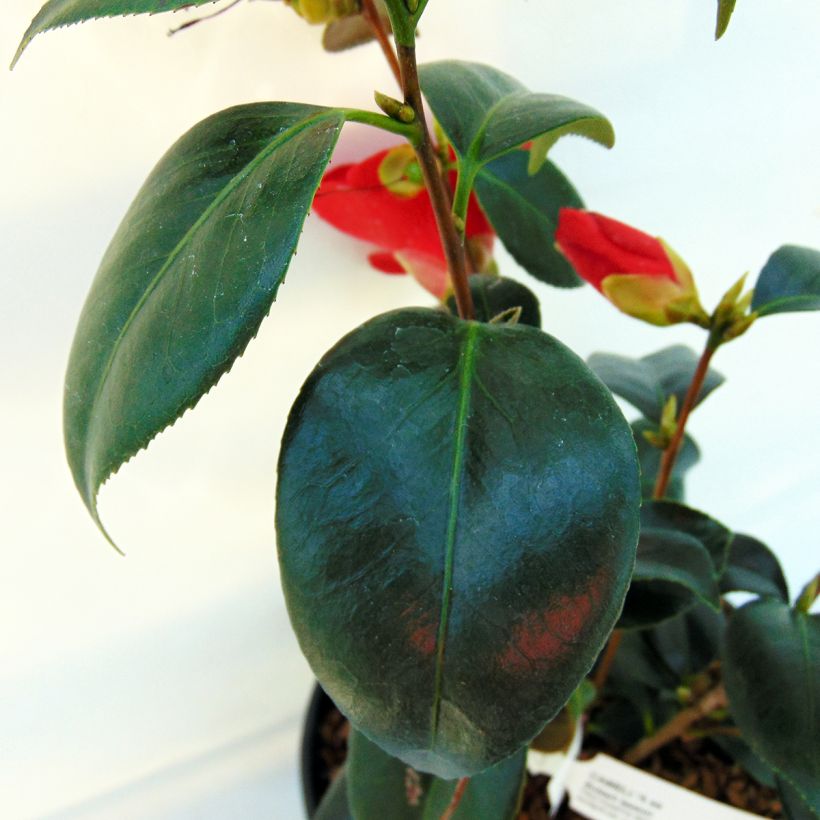

Plant habit
Flowering
Foliage
Botanical data
Camellia
japonica
Robert Lasson
Theaceae
Japanese Camellia, Rose of winter
Cultivar or hybrid
Other Japanese Camellia
View all →Planting and care
Camellia 'Robert Lasson' tolerates full, non-scorching sunlight in favourable (e.g. mild coastal) climates, but it thrives in partial shade or shade, protected from intense sunlight and sheltered from strong winds. Plant in a fresh, humus-rich, acidic, and well-drained soil. Do not plant the bush too deeply; the top of the root ball should be covered with 3 cm (1.2 in) of soil. In winter, cover it with a 5 to 7 cm (2 to 3 in) thick layer of mulch composed of leaf compost and shredded bark. Beware of late frosts that can damage the flowers and buds. Water during dry periods to prevent the bush dropping its flower buds. It is recommended to plant camellias in autumn to promote good root development and better flowering from the first year. Possible diseases include chlorosis caused by excess limestone, brown spots caused by burns on leaves exposed to full south, sooty mould, scale insects, and weevils.
Camellias tolerate container cultivation well, their root system forms a dense but shallow network of root hairs. Annual repotting in a slightly larger pot is sufficient. Regularly feed your potted camellia and preferably water it with non-chalky water. If the water in your region is limestone-rich, add a teaspoon of sequestered iron to the watering can every 3 months, from spring to autumn.
Pruning is not necessary but if required should be done sparingly just after flowering, before the emergence of new spring shoots. Most camellia hybrids do not recover from hard pruning.
Planting period
Intended location
Care
-
, onOrder confirmed
Reply from on Promesse de fleurs
Similar products
Haven't found what you were looking for?
Hardiness is the lowest winter temperature a plant can endure without suffering serious damage or even dying. However, hardiness is affected by location (a sheltered area, such as a patio), protection (winter cover) and soil type (hardiness is improved by well-drained soil).

Photo Sharing Terms & Conditions
In order to encourage gardeners to interact and share their experiences, Promesse de fleurs offers various media enabling content to be uploaded onto its Site - in particular via the ‘Photo sharing’ module.
The User agrees to refrain from:
- Posting any content that is illegal, prejudicial, insulting, racist, inciteful to hatred, revisionist, contrary to public decency, that infringes on privacy or on the privacy rights of third parties, in particular the publicity rights of persons and goods, intellectual property rights, or the right to privacy.
- Submitting content on behalf of a third party;
- Impersonate the identity of a third party and/or publish any personal information about a third party;
In general, the User undertakes to refrain from any unethical behaviour.
All Content (in particular text, comments, files, images, photos, videos, creative works, etc.), which may be subject to property or intellectual property rights, image or other private rights, shall remain the property of the User, subject to the limited rights granted by the terms of the licence granted by Promesse de fleurs as stated below. Users are at liberty to publish or not to publish such Content on the Site, notably via the ‘Photo Sharing’ facility, and accept that this Content shall be made public and freely accessible, notably on the Internet.
Users further acknowledge, undertake to have ,and guarantee that they hold all necessary rights and permissions to publish such material on the Site, in particular with regard to the legislation in force pertaining to any privacy, property, intellectual property, image, or contractual rights, or rights of any other nature. By publishing such Content on the Site, Users acknowledge accepting full liability as publishers of the Content within the meaning of the law, and grant Promesse de fleurs, free of charge, an inclusive, worldwide licence for the said Content for the entire duration of its publication, including all reproduction, representation, up/downloading, displaying, performing, transmission, and storage rights.
Users also grant permission for their name to be linked to the Content and accept that this link may not always be made available.
By engaging in posting material, Users consent to their Content becoming automatically accessible on the Internet, in particular on other sites and/or blogs and/or web pages of the Promesse de fleurs site, including in particular social pages and the Promesse de fleurs catalogue.
Users may secure the removal of entrusted content free of charge by issuing a simple request via our contact form.
The flowering period indicated on our website applies to countries and regions located in USDA zone 8 (France, the United Kingdom, Ireland, the Netherlands, etc.)
It will vary according to where you live:
- In zones 9 to 10 (Italy, Spain, Greece, etc.), flowering will occur about 2 to 4 weeks earlier.
- In zones 6 to 7 (Germany, Poland, Slovenia, and lower mountainous regions), flowering will be delayed by 2 to 3 weeks.
- In zone 5 (Central Europe, Scandinavia), blooming will be delayed by 3 to 5 weeks.
In temperate climates, pruning of spring-flowering shrubs (forsythia, spireas, etc.) should be done just after flowering.
Pruning of summer-flowering shrubs (Indian Lilac, Perovskia, etc.) can be done in winter or spring.
In cold regions as well as with frost-sensitive plants, avoid pruning too early when severe frosts may still occur.
The planting period indicated on our website applies to countries and regions located in USDA zone 8 (France, United Kingdom, Ireland, Netherlands).
It will vary according to where you live:
- In Mediterranean zones (Marseille, Madrid, Milan, etc.), autumn and winter are the best planting periods.
- In continental zones (Strasbourg, Munich, Vienna, etc.), delay planting by 2 to 3 weeks in spring and bring it forward by 2 to 4 weeks in autumn.
- In mountainous regions (the Alps, Pyrenees, Carpathians, etc.), it is best to plant in late spring (May-June) or late summer (August-September).
The harvesting period indicated on our website applies to countries and regions in USDA zone 8 (France, England, Ireland, the Netherlands).
In colder areas (Scandinavia, Poland, Austria...) fruit and vegetable harvests are likely to be delayed by 3-4 weeks.
In warmer areas (Italy, Spain, Greece, etc.), harvesting will probably take place earlier, depending on weather conditions.
The sowing periods indicated on our website apply to countries and regions within USDA Zone 8 (France, UK, Ireland, Netherlands).
In colder areas (Scandinavia, Poland, Austria...), delay any outdoor sowing by 3-4 weeks, or sow under glass.
In warmer climes (Italy, Spain, Greece, etc.), bring outdoor sowing forward by a few weeks.






























